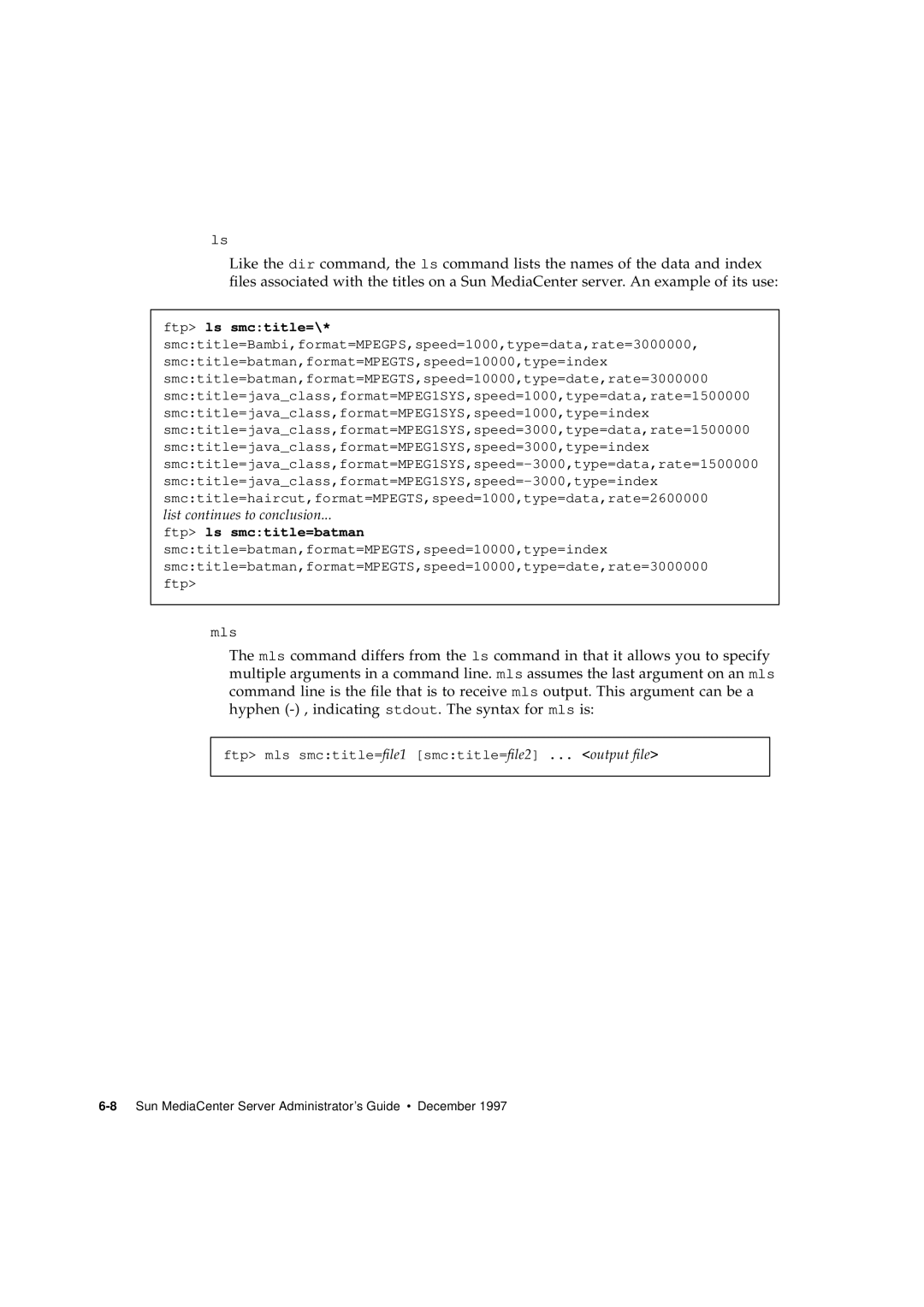
ls
Like the dir command, the ls command lists the names of the data and index files associated with the titles on a Sun MediaCenter server. An example of its use:
ftp> ls smc:title=\*
smc:title=Bambi,format=MPEGPS,speed=1000,type=data,rate=3000000,
smc:title=batman,format=MPEGTS,speed=10000,type=index
smc:title=batman,format=MPEGTS,speed=10000,type=date,rate=3000000 smc:title=java_class,format=MPEG1SYS,speed=1000,type=data,rate=1500000 smc:title=java_class,format=MPEG1SYS,speed=1000,type=index smc:title=java_class,format=MPEG1SYS,speed=3000,type=data,rate=1500000 smc:title=java_class,format=MPEG1SYS,speed=3000,type=index
list continues to conclusion...
ftp> ls smc:title=batman
smc:title=batman,format=MPEGTS,speed=10000,type=index
smc:title=batman,format=MPEGTS,speed=10000,type=date,rate=3000000
ftp>
mls
The mls command differs from the ls command in that it allows you to specify multiple arguments in a command line. mls assumes the last argument on an mls command line is the file that is to receive mls output. This argument can be a hyphen
ftp> mls smc:title=file1 [smc:title=file2] ... <output file>
